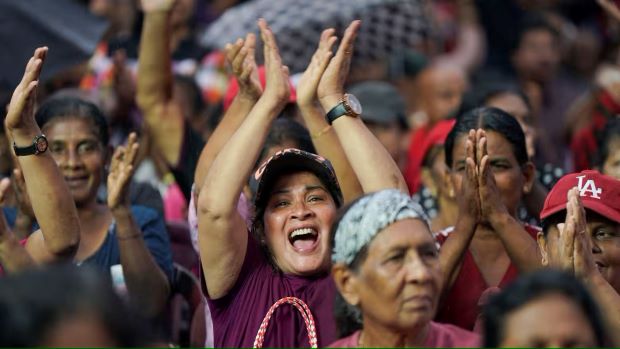Sri Lanka poll campaign ends; ruling NPP seen favourite amid criticism over experience
COLOMBO – Campaigning for Sri Lanka’s parliamentary elections, scheduled for Thursday (14), ended at midnight on Monday (11) with President Anura Kumara Dissanayake’s ruling National People’s Power (NPP) seen as a favourite despite strong criticism by the opposition over the inexperience of party members.
Sri Lanka’s 17.1 million voters will select 196 legislators through direct constituencies in the election, while 29 seats are reserved for a national list, bringing the total number of seats to 225.
The election is significant as it could shape the political landscape of the country following an unprecedented economic crisis with sovereign debt default in 2022 and mass protests, which ousted the then president and government in the same year.
Thursday’s election will see over 8,800 candidates contesting, representing both registered political parties and independent groups, with the Colombo district fielding the highest number of candidates with more than 750. The newly elected parliament is expected to convene on November 21, 2024.
“They (the opposition parties) cannot bear this loss,” President Dissanayake said at an election campaign rally hours before the silence period.
“This time you have to think of establishing a strong government and a stable Parliament,” he said.
Since being elected on September 21, President Dissanayake’s government has mostly maintained the status quo including the debt restructuring and a crucial deal with the International Monetary Fund (IMF) without drastic changes.
The NPP has fielded candidates across many fields and social status for the election with only a handful of leaders having any previous experience in law-making.
Most opposition leaders have criticized the ruling party citing it does not have any experience in governance and law making.
“Still the President can’t spell out his economic policies,” former President Ranil Wickremesinghe said while addressing a campaign rally on Monday.
“You can’t find rice. The price of coconut is higher than the height of a coconut tree. Egg prices are on the rise. How can he discuss this with the IMF?” he added, warning, “You have an L-board government. It will be problematic if we have both an L-board government and an L-board parliament. The country will be destroyed.
Dissanayake earlier in the day said he expects to complete the IMF third review by early February 2025.
-economynext.com



Comments are closed, but trackbacks and pingbacks are open.